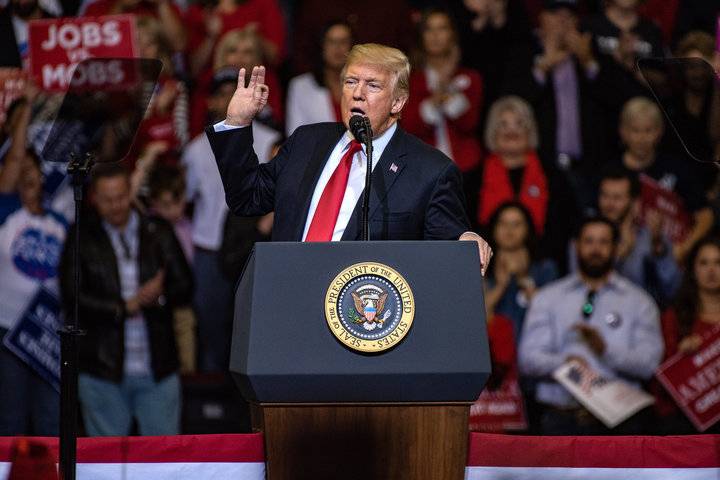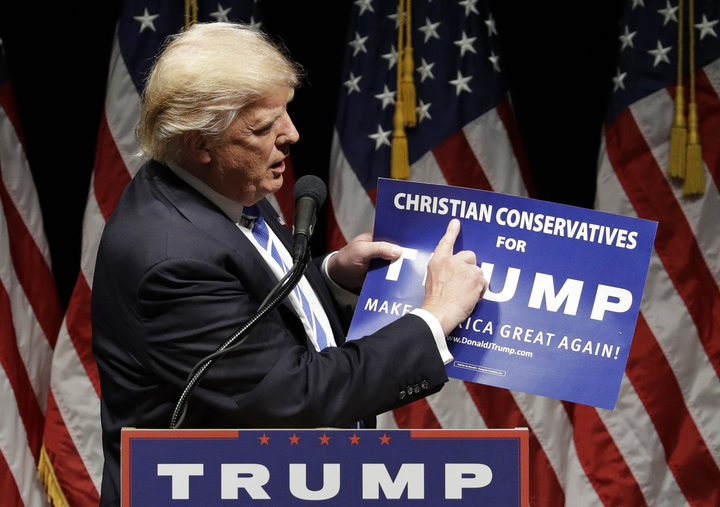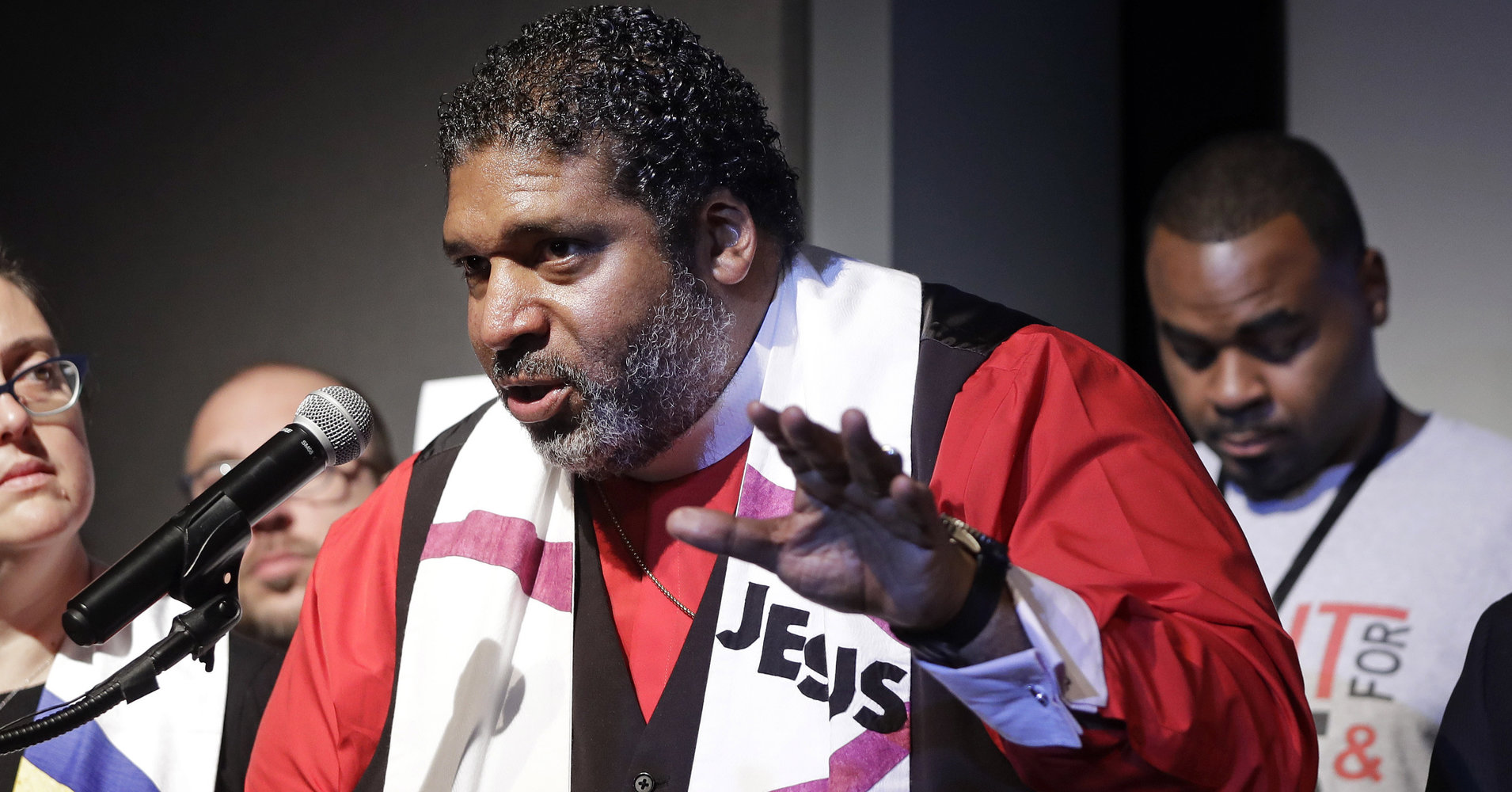[ad_1]
President Donald Trump openly embraced the label “nationalist” at least twice this week, breaking an unspoken rule among presidents about a word that has a long, troubling and racist history.
There’s a key difference between nationalism and patriotism, according to the Rev. William J. Barber II, a prominent progressive Christian pastor and senior fellow at New York’s Auburn Seminary.
“Nationalism suggests a commitment to one country to a fault,” Barber said in a statement released by Auburn. “Patriotism is a love for country that is willing to call it to question and challenge its flaws.”
Barber isn’t just paying lip-service to his concept of patriotism. The North Carolina pastor is a longtime civil rights advocate who often participates in acts of civil disobedience. Earlier this month, Barber was named a recipient of the prestigious MacArthur Genius Grant ― the same day he was arrested in Chicago while protesting with fast-food workers to raise the minimum wage. The pastor has been arrested at least 15 times, according to The Associated Press.
Barber said he doesn’t think God calls people of faith to support nationalism in any form ― whether it’s the ideology embraced by white nationalists or the religious nationalism often espoused by some of Trump’s conservative evangelical supporters.
“We are called to be faithful to the principles of Love, justice and mercy, and Truth,” Barber wrote in his statement. “We are called to be the prophets to the nations; not the Puppets of any president, any slogan or law that violates the fundamental humanity of any person.”

Bloomberg via Getty Images
Trump made his comments about nationalism during a rally in Houston on Monday night.
“You know what I am? I’m a nationalist, OK?” the president said, eliciting cheers from the audience. “I’m a nationalist. Nationalist! Use that word! Use that word!”
When Trump was asked to clarify his remarks during a press conference at the White House the next day, the president claimed to be ignorant of the word’s association with racist movements.
Trump said all he wanted was for America to be “treated with respect” by its allies, particularly in trade deals.
“I’m proud of our country. And I am a nationalist. It’s a word that hasn’t been used too much. Some people use it, but I’m very proud. I think it should be brought back,” he said.
Auburn Seminary, a training institute for progressive faith leaders, canvassed its 25 senior fellows for their thoughts on Trump’s choice to embrace the word “nationalism.”
One of them, Rabbi Sharon Brous, said she isn’t convinced that Trump is unaware of the word’s history.
“He knows exactly what that means,” said Brous, a leader of the Ikar Jewish community in Los Angeles. “He is tacitly endorsing white nationalism, signaling his support of a violent, white supremacist agenda.”
“Violent speech and a culture of division and aggression matter. History has taught us this — we must not ignore it now,” the rabbi added.
Trump previously labeled himself a nationalist while talking about free trade during a February 2017 meeting at the White House, saying he was a “total nationalist” in a “true sense.”

ASSOCIATED PRESS
White nationalists who believe that certain countries or regions should be defined by a white racial identity have also embraced the label.
Nationalism, specifically Christian nationalism, is also a key factor in some conservative Christians’ unabashed support for Trump. Christian nationalism is an ideology that seeks to restore America to its perceived Judeo-Christian roots by leveraging Christians’ political influence.
Some Christians believe Trump was divinely chosen by God to help them achieve their dream of a Christian nation. As a result, as long as he continues to further their agenda, they are willing to offer Trump a “mulligan” when he behaves in ways evangelicals would typically condemn as immoral.
It’s rare for people to openly identify as Christian nationalists. However, research indicates that Americans who believe in several key tenets of Christian nationalism are more likely to have voted for Trump.
Lisa Sharon Harper, an Auburn senior fellow who founded the faith-based consulting group Freedom Road, said that nationalism calls its followers to treat the government as its foundational source of identity.
“[Nationalism] dethrones and replaces God with the leader of the nation/state,” Harper wrote in a statement. “By normalizing nationalism, Donald Trump is calling his base, the majority of whom are Evangelicals, to follow him—away from God.”
[ad_2]
Source link

